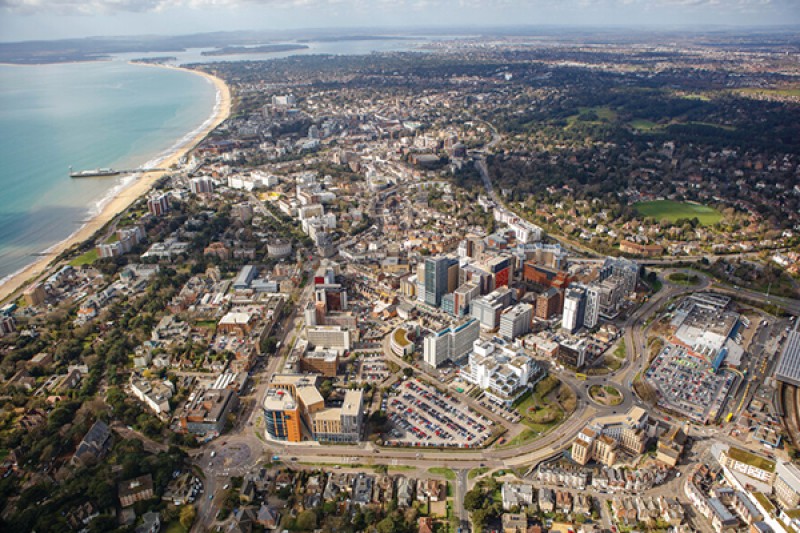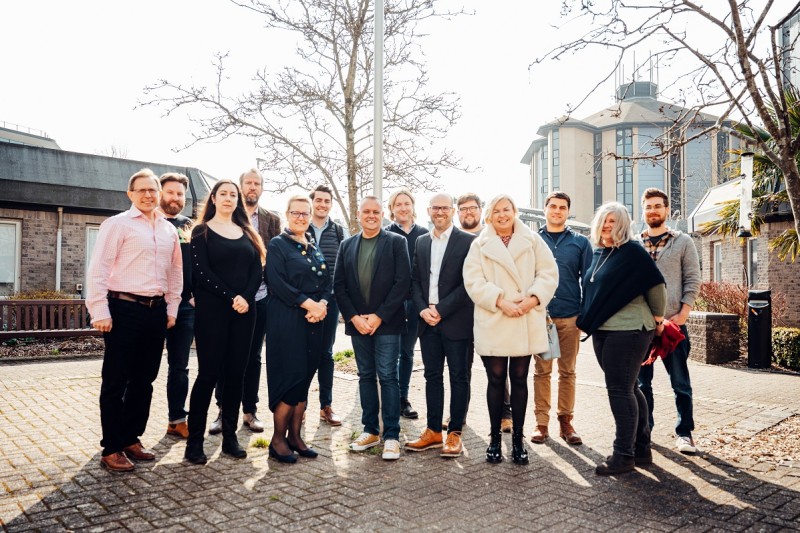The difference Bournemouth University’s research, education and expertise makes to society has been recognised through the third Knowledge Exchange Framework (KEF) exercise, published today.
Universities work with many different partners to ensure that the knowledge gained from research and education can be used for the benefit of the economy and society - this is known as knowledge exchange.
This activity could range from events for the local community, to working with businesses and organisations on collaborative research projects, providing training, or licensing intellectual property so others can use it.
The KEF is released annually by Research England and aims to increase efficiency and effectiveness in public funding for knowledge exchange and to encourage universities to understand and improve on their performance.

BU’s performance in the third KEF demonstrates several areas of strength, including research partnerships, working with business, and local growth and regeneration.
BU’s work with health and care providers, including partnerships with University Hospitals Dorset (UHD) and Dorset Healthcare, supports initiatives across research, education and practice in the region, helping people to live better for longer.
This includes student placements and Continuing Professional Development (CPD) for staff, with over 32,000 learner days undertaken by NHS staff at BU over the past three years. Collaborative research with UHD includes optimising nutritional care for inpatients and creating a medical simulation game to help prepare junior doctors for the pressures of life on the ward.
The university’s expertise in environmental science is helping to protect and preserve our natural environment, from working with the National Trust and RSPB to monitor habitats and support conservation efforts in the Purbecks, to the ecological consultancy work undertaken by Bournemouth University Global Environmental Solutions (BUG).
 Help To Grow Management - Cohort I
Help To Grow Management - Cohort IBU also supports business and entrepreneurship across the region. Around 60 SME owners have so far participated in the university’s Help to Grow: Management Programme while BU’s Eco-Entrepreneurs Fund, delivered in partnership with Santander, has supported BU students and graduates to develop businesses which address the climate and ecological crisis.
As well as regional engagement, the university works with communities and organisations on a national and international level – such as the Disaster Management Centre, which is assisting communities globally, including in Sierra Leone, in crisis preparedness and recovery.
Professor Keith Phalp, Pro Vice-Chancellor at Bournemouth University, said: “We are proud to be a catalyst for growth, using our skills and expertise to support our region and enrich society.
“The KEF provides an opportunity to assess our progress in knowledge exchange and the impact of our work. It is great to recognise the contribution of our staff, students and graduates in supporting this work on a regional, national, and international scale and making a real difference to the world around us.”
The results of the KEF have been published in the form of institutional dashboards, with institutions measured against seven perspectives - including working with businesses, the public and the third sector; intellectual property and commercialisation; and public and community engagement.
In recognition of the fact that universities have different areas of expertise and work in regions with different needs, all universities in England have been placed into different clusters according to their expertise, size and research activity.
BU is in Cluster E, alongside other large universities with a broad range of disciplines generating research. Other universities in the cluster include Oxford Brookes University, Nottingham Trent University, and Portsmouth University.
Professor Dame Jessica Corner, Executive Chair of Research England, said: “Across the breadth of higher education, institutions make rich and diverse contributions to the economy and society through their knowledge exchange activities.
“The KEF continues to be a powerful tool to describe the breadth of scope of knowledge exchange. It also provides important evidence of different university strengths through peer group comparisons.”
Visit the Knowledge Exchange Framework website to view the institutional dashboards and find out more about the KEF.



